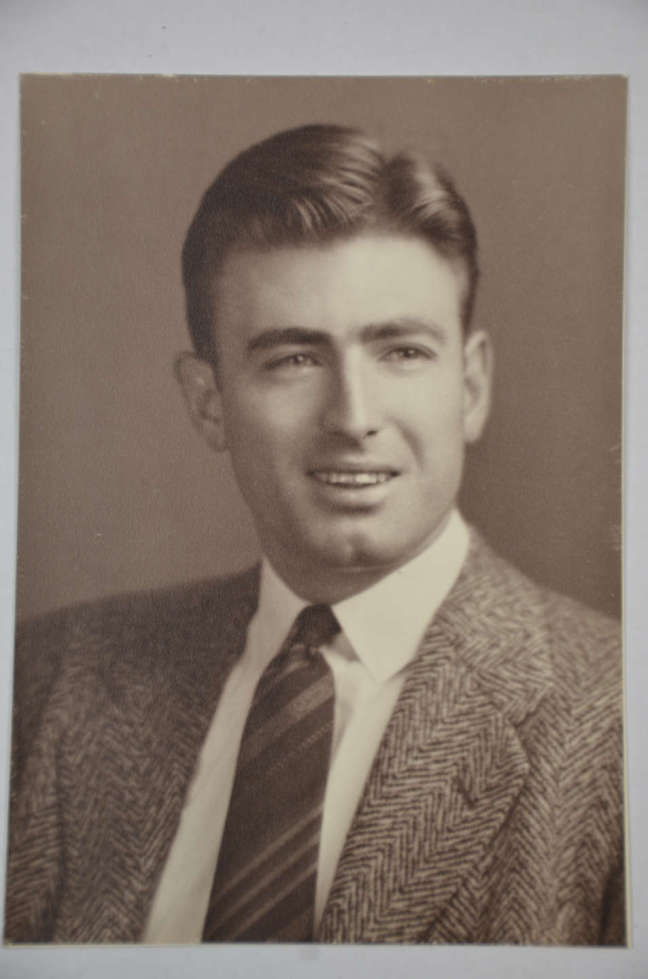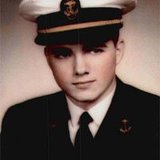AMES, Iowa — Meredith DeRoy Winter was able to pen one last letter to his love during the Battle of Iwo Jima, a battle that two days later would claim his life.
Winter was born Feb. 26, 1919, in Dysart, the oldest of seven children born to Thomas and Lennora Winter.
While the majority of his life was spent in Dysart, the family lived in New York for four years as dairy farmers after the Great Depression caused Winter’s father to lose his job. After Winter graduated as valedictorian of his high school class, the family returned to Dysart.
His passion for education was instilled at a young age by his mother, who was a teacher in a one-room schoolhouse. So, he came to Iowa State University in 1938 to study chemistry, where his college friends called him “Tim” — another nickname to add to the list since his family dubbed him “Merd.” He worked as a janitor and in a campus cafeteria to earn money to pay for college.
It was here that Winter met the love of his life: Betty Ewing.
He enlisted in the U.S. Marine Corps in September 1943. While Winter technically received his bachelor’s degree that December, he wasn’t at the ceremony.
He had been ordered to active duty in November, and was training for service in San Diego during commencement. Winter arrived in Guam as part of G Company, 2nd Battalion, 21st Marine Regiment, 3rd Marine Division, where he was tasked with patrolling against Japanese forces.
Although the U.S. had Japan on the defensive by the fall of 1944, the Imperial Japanese Army still held strategic areas that prevented U.S. B-29 bombers from completing bombing missions over mainland Japan. American bombers continued getting intercepted by Japanese fighters taking off from Iwo Jima island.
The invasion of Iwo Jima
Iwo Jima had to be captured so the U.S. could continue operations to defeat Japan. On Feb. 19, 1945, after two months of naval bombardment, approximately 70,000 Marines led the invasion of Iwo Jima.
Two days later, Pfc. Winter became one of them as the 3rd Marine Division landed on Yellow Beach.
On his 26th birthday, Winter wrote to Betty that he was “still in one piece.”
“It’s been really rough the last few days to be truthful,” Winter wrote. “I feel 56 instead of 26.”
He asked Betty to tell his parents where he was and that he was all right, and closed the letter with, “I think I will say good-bye for now.”
Two days later, on Feb. 28, 1945, Winter and five other Marines were killed by a Japanese mortar during heavy fighting. The Battle of Iwo Jima is one of the bloodiest in Marine Corps history, claiming the lives of 7,000 Americans.
Winter’s ultimate sacrifice helped save the lives of an estimated 24,000 U.S. airmen since the island served as an emergency landing site for more than 2,000 B-29 bombers whose missions were crucial to bringing the war in the Pacific to an end.
Winter was initially buried in the 3rd Marine Division Cemetery on Iwo Jima. On May 5, 1948, his body was returned to Dysart for permanent burial.



